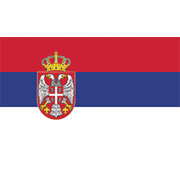Fiscal subject related
In case of device failure or malfunction, taxpayers who rarely issue fiscal receipts can, in addition to having a fiscal device with a security element in the form of a smart card installed in it, use an application for the mobile devices which is then connected to the V-PFR (Virtual processor of fiscal receipts).
Moreover, there is an option of downloading a free, universal application ESIR Tax Administration (Serbian: ESIR Poreska uprava) on a mobile device, from the google play store. Afterward, a taxpayer can request a security element in the form of a digital file from the Tax Administration and use that application to keep a record of transaction data until the fiscal device is fixed.
In regards to business performed in a retail business premise where there has been a case of a broken POS, the retailer as a taxpayer of fiscalization can own another spare fiscal device, which can then be used in case of the broken primary fiscal device. In that case, it is necessary to install into the spare fiscal device a security element that was used in the primary broken fiscal device.
It is important to note that fiscal receipts can and must be issued even in cases of having no internet connection. Broken POS or a loss of internet connection doesn’t exempt the taxpayers from the obligation of keeping a record of transactions and issuing fiscal receipts in case of continuing with sales. The customer cannot leave the retail store without the fiscal receipt issued from the electronic fiscal device.
Law on fiscalization requires the taxpayers of fiscalization to have at least one L-PFR (the local processor of fiscal receipts) to record and sign all completed transactions until the moment of re-establishing the internet connection. In other words, it is obligatory to store transaction data in the internal memory of the electronic fiscal device until the moment of transferring this data to the Tax administration.
Ultimately, the taxpayers of fiscalization can also opt to close their stores temporarily and stop all sales until the problem is solved.
Other news from Serbia
Changes in Serbian Law on Electronic Invoicing Expand Rules to Affect Certain Retail Transactions in 2026.
 Serbia
Author: Ivana Picajkić
Serbia
Author: Ivana Picajkić
Serbia has amended its Law on Electronic Invoicing, adopted by the National Assembly of Serbia and published in the Official Gazette, extending e-invoicing obligations to specific retail transactions that were previously exempt. Read more
Subscribe to get access to the latest news, documents, webinars and educations.
Already subscriber? Login


Serbia Extends Transition Period for usage of Electronic Fiscal Devices on Market Stalls until 2027
 Serbia
Author: Tara Nedeljković
Serbia
Author: Tara Nedeljković
Serbia has postponed the mandatory use of electronic fiscal devices for market stall and green-market sellers until January 1, 2027, keeping them exempt from fiscalization through 2026 under an amended regulation published in the Official Gazette. Read more
Subscribe to get access to the latest news, documents, webinars and educations.
Already subscriber? Login


New document was uploaded: S4FiscalBackoffice Patch
S4F backoffice patch is intended for users who have already installed S4F backoffice and are intended to update existing installations to latest version. To do so apply only patches that are marked with version number that is newer than your currently installed instance of backoffice. Please make sure to install all available patches sequentially (without skipping). This package contains instruction, release notes, changelog and software packages required for deployment of this software component. Read more
Subscribe to get access to the latest news, documents, webinars and educations.
Already subscriber? Login


New document was uploaded: S4F backoffice installer
S4F backoffice installer is intended for users who are installing the software for the first time. Please make sure to obtain latest version of installer and to apply all subsequent patches that are released subsequently. This package contains instruction, release notes, changelog and software packages required for deployment of this software component. This version of the Backoffice installer supports the following countries: Austria, Bulgaria, Croatia, France, Italy, Poland, Portugal, Romania, Slovakia and Slovenia. Read more
Subscribe to get access to the latest news, documents, webinars and educations.
Already subscriber? Login


New document was uploaded: S4FiscalBackoffice Patch
S4F backoffice patch is intended for users who have already installed S4F backoffice and are intended to update existing installations to latest version. To do so apply only patches that are marked with version number that is newer than your currently installed instance of backoffice. Please make sure to install all available patches sequentially (without skipping). This package contains instruction, release notes, changelog and software packages required for deployment of this software component. Read more
Subscribe to get access to the latest news, documents, webinars and educations.
Already subscriber? Login


Serbia is Introducing Mandatory e-Consignments and e-Delivery: Novelties in Digital Logistics
 Serbia
Author: Tara Nedeljković
Serbia
Author: Tara Nedeljković
Serbia's digitalization advances with eConsignment and e-Delivery, enhancing goods tracking and acceptance documentation. Read more
Subscribe to get access to the latest news, documents, webinars and educations.
Already subscriber? Login


New document was uploaded: Checklist for ESIR certification process in Serbia
 Serbia
Author: Ištvan Božoki
Serbia
Author: Ištvan Božoki
The uploaded document serves as the official application template for companies seeking approval for their ESIR (Electronic System for Issuing Receipts) solutions in the Republic of Serbia. Read more
Subscribe to get access to the latest news, documents, webinars and educations.
Already subscriber? Login

